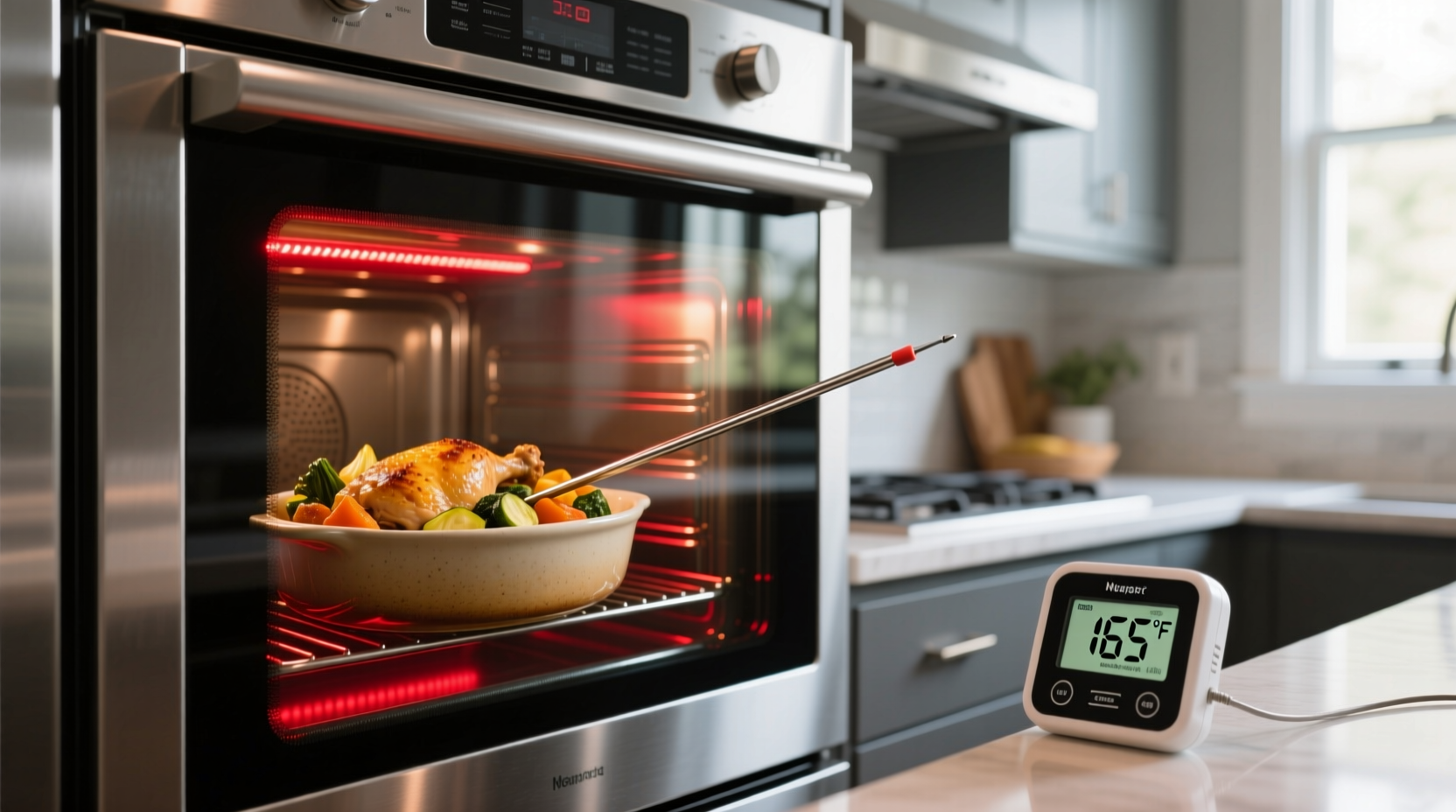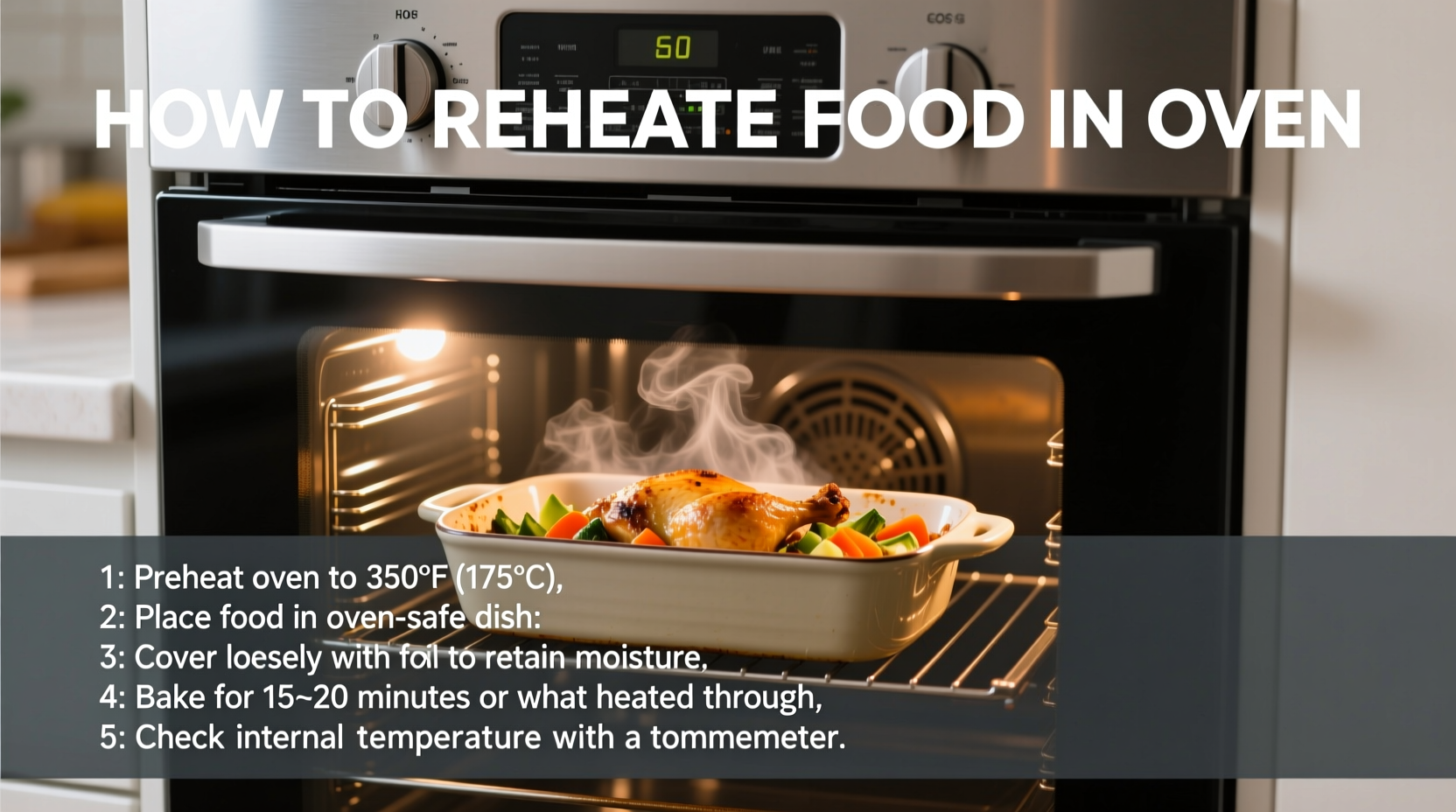Reheat food in oven properly by preheating to 275-350°F, covering food to retain moisture, and heating until internal temperature reaches 165°F. Different foods require specific temperatures and techniques for optimal results without drying out.
The Complete Guide to Reheating Food in Oven Without Drying It Out
Nothing ruins a delicious meal more than poorly reheated leftovers. When you're searching for how to reheat food in oven properly, you need reliable methods that preserve flavor and texture while ensuring food safety. After decades of professional kitchen experience, I've perfected oven reheating techniques that work consistently across various food types.
Why Oven Reheating Beats Other Methods
While microwaves offer speed, oven reheating provides superior results for most foods. The gentle, even heat distribution prevents the rubbery texture common with microwave reheating. Professional kitchens consistently choose oven reheating for quality preservation, especially for dishes where texture matters.
| Reheating Method | Texture Preservation | Heating Evenness | Best For |
|---|---|---|---|
| Oven | Excellent | Excellent | Casseroles, roasted meats, pizza, baked goods |
| Microwave | Poor | Fair | Liquids, soups, small portions |
| Stovetop | Good | Good | Sauces, stir-fries, small portions |
Essential Preparation Steps Before Reheating
Proper preparation determines your reheating success. Never skip these critical steps:
- Bring food to room temperature - Remove from refrigerator 20-30 minutes before reheating for more even heating
- Add moisture strategically - Sprinkle water or broth on drier foods; cover with foil or lid
- Use appropriate containers - Oven-safe glass or ceramic retains heat better than metal
- Preheat properly - Never place food in a cold oven
Step-by-Step Oven Reheating Process
Follow this professional chef-tested method for perfect results every time:
- Preheat oven to 275-350°F (135-175°C) depending on food type
- Prepare food by adding 1-2 tablespoons of liquid and covering tightly
- Place in center rack for even heat distribution
- Heat until internal temperature reaches 165°F (74°C) - use food thermometer
- Rest 5-10 minutes before serving to allow heat distribution

Food-Specific Reheating Guidelines
Different foods require tailored approaches. These USDA-recommended temperatures ensure both safety and quality:
| Food Type | Optimal Temperature | Reheating Time | Special Tips |
|---|---|---|---|
| Cooked meats | 325°F (163°C) | 15-25 minutes | Add broth, cover tightly, slice before reheating |
| Pizza | 350°F (175°C) | 10-15 minutes | Place on preheated stone, add water drop for crisp crust |
| Casseroles | 325°F (163°C) | 20-30 minutes | Stir halfway through, cover first half |
| Baked goods | 300°F (149°C) | 5-10 minutes | Wrap in foil, avoid over-drying |
When Oven Reheating Isn't Appropriate
Understanding context boundaries prevents kitchen disasters. Oven reheating works best for:
- Foods with higher moisture content
- Items originally cooked with dry heat methods
- Portions larger than one cup
- Foods where texture preservation is critical
Avoid oven reheating for:
- Delicate fish fillets (use stovetop instead)
- Small portions under 1 cup
- Foods with high dairy content that may separate
- Items needing quick reheating (<5 minutes)
Food Safety Essentials for Reheating
Following USDA food safety guidelines prevents illness. The Food Safety and Inspection Service recommends:
"Reheated food must reach 165°F internally. Use a food thermometer to verify temperature in multiple spots, especially with dense foods. Leftovers should be reheated within 3-4 days of refrigeration." (USDA Food Safety and Inspection Service)
Never partially reheat food and return it to the refrigerator. Either reheat completely or divide into smaller portions before initial storage.
Troubleshooting Common Reheating Problems
Solve these frequent issues with professional solutions:
- Dry food: Add moisture before reheating, reduce temperature, shorten time
- Cold spots: Stir midway, rotate dish, use lower temperature for longer
- Soggy texture: Remove cover for final 5 minutes, place on upper rack
- Burnt edges: Cover with foil, reduce temperature by 25°F
Advanced Techniques for Perfect Results
Professional chefs use these methods to elevate reheated meals:
- Steam injection: Place water-filled dish on lower rack for moisture
- Temperature staging: Start low (275°F), finish high (375°F) for crispness
- Flavor refresh: Add fresh herbs or citrus zest after reheating
- Texture restoration: Finish under broiler for 1-2 minutes for crispness
FAQs About Oven Reheating
What's the best temperature to reheat most foods in the oven?
The optimal temperature range for reheating most foods is 275-350°F (135-175°C). Lower temperatures (275-300°F) work best for delicate items and larger portions, while higher temperatures (325-350°F) suit heartier dishes that benefit from some crisping.
How long does it take to reheat food in the oven compared to microwave?
Oven reheating typically takes 15-30 minutes versus 1-5 minutes in a microwave. While slower, the oven method preserves texture and flavor significantly better, especially for foods with complex textures like pizza, roasted meats, and casseroles.
Can you reheat pizza in the oven without drying it out?
Yes, reheating pizza in a 350°F oven for 10-15 minutes produces superior results. Place slices on a preheated pizza stone or baking sheet, add a single drop of water to the oven, and cover loosely with foil for the first 5 minutes. This method restores crisp crust while melting cheese perfectly.
How do you prevent food from drying out when reheating in oven?
Prevent drying by adding 1-2 tablespoons of liquid (broth, water, or sauce), covering tightly with foil or lid, and using lower temperatures (275-300°F). For meats, slice before reheating and place in a single layer. Always check internal temperature with a food thermometer to avoid overcooking.
Is it safe to reheat food multiple times in the oven?
The USDA recommends reheating food only once for optimal safety and quality. Each reheating cycle degrades food quality and increases bacterial growth risk if not handled properly. If you have large portions, divide into single-serving containers before initial refrigeration to avoid multiple reheating cycles.











 浙公网安备
33010002000092号
浙公网安备
33010002000092号 浙B2-20120091-4
浙B2-20120091-4